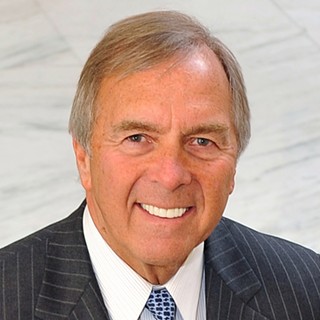In a perverse way, obituaries are one of the most meaningful features of any newspaper. They summarize a decedent's life, focusing readers more on life's accomplishments and positives than on death's sorrows. The one thing all people can agree upon is that no one escapes this life alive. The average life expectancy of a baby born today is 78.2 years. Yet just because our mortality is a certainty doesn't mean that seniority is a nullity. A life's value is often chronicled in an obituary.
There's something magical yet sobering about the limitations on life. Living long is precious and wondrous. Living short often accelerates perspective. National Geographic magazine reported last year that medical advances could result in a baby born today living to the ripe age of 120 or longer. A 2013 Pew Research survey found that 56 percent of those polled don't want to live to be 120 years old in spite of medical advances that could foster that result. The oldest known person in the world is a Japanese woman who has reached 116. A New York man is 111. A French woman lived 122 years. America has more than 53,000 centenarians, people who have lived at least 100 years. Most centenarians credit sleep, clean living and low stress as the keys to their longevity. The Japanese lady attributes her 116 years to two secrets: rest and eating sushi.
Regardless of how long we want to live, genetics plays a major role. The so-called aging gene, configured by scientists in 1993 by studying a worm with only a three-week life span — the C elegans — provided researchers with some definitive evidence about the aging process.
The most significant lessons of life and the ones that most impact our emotions are the ones that control our outlook on daily living, even if we are facing our mortality sooner than we'd prefer. Obituaries often chronicle the ways life is lived, often incorporating tidbits of wisdom and accomplishments achieved. They're a way of remembering someone's life fondly.
The popular, long-running CBS television program 60 Minutes ran a recent story on things one can do to live a long life. It instructed:
Drink 1½ cups of coffee each day.
Exercise a cumulative 45 minutes per day.
Go easy on sugar in your diet.
Maintain a social network.
The popular book Younger Next Year by Chris Crowley and Dr. Henry S. Lodge is so compelling that simply reading it spurs one to exercise. The authors speak of the human body "decaying" if not used, with even the thought of "decay" being not only unpleasant but frightful. The authors simply advise: "Exercise six days per week and stop eating crap!" Former Sen. Bob Dole famously quipped about centenarian Sen. Strom Thurmond: "When Strom eats a banana, I eat a banana."
Aging is a topic of interest for Congress, too. The Congressional statement on aging is codified in 29 USC 621, declaring support for promoting employment of older persons, prohibiting age discrimination and helping employers ease employment problems that prevent employment harm to older Americans. Hearings have been held to determine why disabilities occur among the aged in rural and urban populations, and how to prevent elder abuse. Notable in the latest national news has been the failures of veterans' homes to address the medical needs of American veterans, particularly the elderly, in need of treatment and care.
In essence, aging is a state of mind coupled with an appreciation for the fact that some body parts simply start to wear out, preventing us from being able at age 60 to do what we could at age 40. The state-of-mind part is attitudinal — if we act and think old, we'll tend to be old. More important are the perspectives we gain with age.
A longtime trial lawyer friend speaks of losing enthusiasm for trial law, but gaining enthusiasm for learning in general as he ages. That's healthy aging. He, and others who love life, age with grace and dignity, and are appreciated for their positive outlook on their senior status. Frank Sinatra crooned of "the warm September of my years."
Growing older means we've lived through the thrill of victories and the agonies of defeat, because that's what most lives consist of — satisfactions tempered sometimes by disappointments. Hopefully, the latter yields to the former, but for some, acceptance of both with equanimity is the truest test of maturity.
As we humans pass through various stages of life, with all the benefits of each, we best keep in mind that our judgments of those older than we are will soon be replaced by the judgments of those younger than we are.
Aging doesn't favor the conservative or the liberal, the Democrat over the Republican. Though some whose life is cut short can truly appreciate its preciousness, those who live a long life can maturely discern its meaning and the joys of it. Enough, of course, to fill an obituary with positives that will be long remembered.♦





















